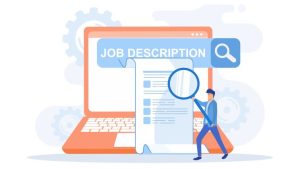31 Short-Term Goals to Improve Your Career Today
 Publié le 11 November 2024
Publié le 11 November 2024
Discover 31 short-term career goals to improve your career today and advance your professional journey, from skill-building to better time management.
You won’t reach the peak of your career overnight.
It takes a lot of time and effort, both on an everyday and long-term basis.
While both short-term and long-term career goals are important, the latter take relatively longer to accomplish.
In the time it takes to reach your long-term work goals, you also need some small wins to stay motivated. These wins come from short-term career goals. But what exactly are short-term career goals?
Basically, these are goals you can achieve in the near future, ranging from a day to a few months.
Since they offer quick results, they keep you motivated to work toward your long-term goals. Here are some personal goals examples for professionals to set today.
Which ones should you set? Let’s explore.
31 Short-Term Career Goals
1. Update Your Resume
Your resume is the first impression a recruiter has of you. You must enhance your resume regularly, even if you’re not actively job hunting.
While there’s no standard frequency, Jeff Hyman, CEO of Recruit Rockstars, told CNBC in an interview that candidates should update their resumes once every three months.
You can use Canva’s free online resume builder to access hundreds of free templates and customize them according to your industry.
Canva’s free online resume builder
2. Create or Revamp Your LinkedIn Profile
It’s not uncommon for LinkedIn profiles to be neglected and outdated. However, as the platform has become a go-to for recruiters and hiring managers, it’s important to keep it up to date.
Set a goal to update your LinkedIn profile with:
- New achievements, such as a promotion or a new certification
- Updated job descriptions and responsibilities
- A professional headshot
- Keywords relevant to your industry and job titles you’re targeting
- Volunteer experiences
3. Complete 1 Online Course Per Month
Learning regularly shows your commitment to self-improvement, a highly valued trait in the professional world. You don’t necessarily have to take a full-blown college course, but instead, find online courses or webinars that align with your career goals.
Platforms like Coursera, Udemy, EdX, and FutureLearn provide access to a ton of courses. Professionals in the creative field can also check out Skillshare.
4. Learn a New Skill Related to Your Field
Again, your new skill doesn’t have to be a major accomplishment, but it should be something that adds value to your resume and LinkedIn profile. For example, if you’re in marketing, you could learn how to use a new social media management tool or improve your Google Analytics skills.
Pro Tip: If you want to find valuable skills in your field, go to Payscale and search for the average salary for your job. Scroll down to the bottom of the page and look at popular skills to decide which new skill you should learn.
Project manager skills
5. Attend a Webinar
One of the best short-term career goals examples is networking. And what better way to do it than virtually from the comfort of your couch (we’re not judging)?
You can find webinars through professional organizations, LinkedIn groups, or even a simple Google search. Attend webinars relevant to your industry and apply the insights to your current or future job.
6. Attend a Networking Event in Person
If it’s not too much traveling, consider attending a networking event in person. You can find events through your college’s alumni network, professional organizations, or Meetup groups.
Talk to people and get to know them. You never know who you’ll meet and what opportunities may arise from those connections. Plus, it’s always a good idea to expand your professional network.
7. Read a Book on Leadership Every Month
If you plan to branch out into leadership roles, you must learn from the best. You can find plenty of great books on leadership written by successful CEOs and entrepreneurs. Set a goal to read one book monthly and apply the concepts to your job.
8. Watch a TED Talk by an Industry Leader Every Day
Many of us spend our lunch breaks watching YouTube videos, so why not make it a productive habit? One of your professional development goals could be to watch a TED talk by a leader in your industry every day.
You’ll stay up-to-date on industry trends and gain new insights from successful professionals.
9. Fix a Weakness in Your Workflow
Of your professional targets, one should be getting better at what you do. If you know of a weakness in your current process or workflow, make it a goal to fix it.
Suppose you work in graphic design but struggle with creating layouts or typography. You can fix this weakness by watching tutorials or taking short courses on graphic design fundamentals.
Similarly, if you find that collecting client documents eats up too much of your time, use a tool for document collection to streamline the process.
10. Create Your Freelance Portfolio
If you’re a freelancer or planning to become one, one of your short-term career goals could be to build a freelance portfolio. A well-made portfolio can ultimately land you a full-time role, further advancing your career.
Canva has a free portfolio website maker that you can use. For design and development portfolios, use platforms such as Behance or Dribbble. Alternatively, you can use Adobe’s free online portfolio maker.
Check out this video to learn how to make a portfolio website with Canva: How to Create a Beautiful Photography Portfolio in Minutes 🖼️
11. Analyze Your Performance Review by the End of the Week
One of the many short-term career goals examples for performance review is to master self-assessment. Use your last performance review (by your manager or HR) to identify areas of improvement.
Then, set more short-term and long-term career goals to help you achieve better results before your next performance review.
12. Volunteer for a Task Outside Your Job Description
Besides your everyday tasks, you can also grow your skills by volunteering for tasks that fall outside of your job description.
For example, if you do SEO for startups, you can volunteer to write a few articles for their blog.
This way, you can add some content writing experience to your SEO portfolio. It will demonstrate your willingness to take on new challenges and contribute to the company’s growth.
13. Improve Your Daily Productivity
Another of your workplace goals can be to improve your daily productivity. For example, you can set a goal to complete a certain number of daily tasks or projects.
Suppose you want to finish your emails by 11 in the morning and follow up with clients by 1 pm. Set a goal to achieve that every day. You can use a tool like SaneBox to filter emails by importance to save time managing them and an email tracking service to have a list of people that you need to follow up with on any given day.
SaneBox email inbox management
14. Participate in an In-House Training Session
Most organizations offer in-house training and mentorship programs for their employees. However, many programs are not mandatory and may require you to sign up for them.
Make it a goal to participate in at least one in-house training session every quarter. It will help you add new skills to your portfolio and show your superiors that you’re eager to learn and grow within the company.
15. Create a Time Management System
One of your work goals should be to manage your time well. Set a goal to create a time management system that works best for you, whether it’s using a calendar app or making daily to-do lists.
You can also use time management techniques such as Pomodoro, in which you work for a set amount of time and take short breaks in between to increase productivity. Similarly, you can use the Eisenhower Matrix, which helps you prioritize tasks based on their urgency and importance.
Example of an Eisenhower Matrix
16. Go Out With a Colleague Every Month
Another goal you can set is to socialize and network with your colleagues. Make it a goal to go out with at least one colleague every month, whether it’s for lunch or after-work drinks.
You never know how these connections can help you in the future, be it for a job opportunity or general career advice. Plus, getting to know your colleagues outside of work can improve your working relationships and make the office a more enjoyable place to be.
17. Practice Your Interview Skills
When it comes to professional development goals, one good example is to continuously work on your interview skills. You may not be looking for a job at the moment. But it still helps to brush up on your interview skills, as you never know when an opportunity may come knocking.
You can practice with a friend or even attend mock interviews to get feedback and improve upon your answers. Harvard Business Review’s video standing out in a job interview can be quite helpful,
Stand Out in a Job Interview | The Harvard Business Review Guide
18. Work on Your Personal Branding
One of your short-term career goals should be to create a brand for yourself. While it takes some time to become renowned in your field, you can set some initial goals to work on your branding, such as:
- Creating a personal website or blog
- Updating your LinkedIn profile
- Contributing to online forums
For example, if you specialize in SEO for lawyers, you should brand yourself as a pro in the niche.
Show law-related case studies on your website. Share them on social media, too. Plus, contribute to online forums and groups for lawyers to show your expertise and build a network.
19. Create an Elevator Pitch
Set a goal to create a concise elevator pitch for yourself. It’s a short summary of who you are, what you do, and why someone should hire or work with you. Make it around 30 seconds long and highlight your unique strengths and skills.
Tennessee Tech University has a resource with examples for creating a good elevator speech.
20. Take Regular Short Breaks to Prevent Burnout
Not all your career goals have to be work-related. You should also set some goals to improve your overall well-being and prevent burnout since it’s necessary for your career success.
Your goal should be to take the entire lunch break. Don’t spend half of it wrapping up tasks. It’s okay to use the full break to relax and recharge. You can also take five-minute breaks every hour to walk around or stretch.
21. Publish a Blog Every Week
Among short-term career goals examples, writing a blog post or thought leadership article every week is one that will help you establish yourself as an authority in your industry. You can publish these articles on LinkedIn or Medium.
Then, use a QR code generator to create a QR code to display on your resume that people can scan to go to your blog or Medium account.
22. Offer a Peer Tutorial
Besides learning by yourself, one of your workplace goals can be to teach others something new. You may teach a skill to a colleague or offer a tutorial to a group of peers.
Peer tutorials will eventually help you meet your professional targets of leadership and mentorship. When management sees your proactive attitude, they may consider you for a leadership role in the future.
23. Automate a Task
Part of what hinders many people’s professional growth is time constraints. They’re so busy with their daily tasks that they can’t take on added responsibilities. To combat this, you can automate a task or process to save time.
For example, if you work as a marketer for a B2B e-commerce platform, you can automate the weekly newsletter setup or social media post scheduling. The time you save can be invested in working on other projects or taking a course.
This is especially tough when you are a self-employed individual or a founder of a small business because in all likelihood, you have limited funds and you want to focus on putting that money towards what matters most.
When resources are limited, focus on hiring people for two reasons:
- The task you are hiring out is essential to brand growth.
- You know that there is someone else out there who can do a much better job than you.
During my journey, that was graphic design and web design.
Sure- I could have spent hours learning the basics of web design and creating a semi-decent website but it would have led to hours of wasted time and the end product would not have been of the best quality either because at the end of the day- web design was not my forte.
I reached out to an experienced graphic designer instead.
The key to success is often focusing on what you do best and bringing on people for the rest.
24. Organize Your Physical and Digital Files
As they say, a cluttered workspace leads to a cluttered mind. While this may not be on the list of your career ambitions, you can set a goal to organize your workstation and digital files to increase productivity.
For example, you can get containers or organizers for your desk. On your computer, create folders to categorize your files and delete unnecessary documents. You can also move important files to Google Drive or a cloud storage system for easy access and backup.
Google Drive features
25. Master a Tool or Technology
The World Economic Forum reports that 23% of jobs will change in the future due to industry transformation. As a result, the workforce will have to reskill.
Therefore, you should set a short-term goal to master a new tool, such as an AI software your organization may be using. Try to spend at least an hour every day learning and practicing. Once you become proficient, you can add this new skill to your resume and stay caught up in the evolving job market.
26. Apply to 5 Jobs Daily
You may want to work for a specific company or field based on your career ambitions. You should set a goal to apply to a certain number of jobs every day to get to that point.
Try to aim for at least 5 per day. On LinkedIn or any other job platform, you can filter jobs by title, location, keywords, or seniority level to make sure you’re not wasting your time on irrelevant positions. Keep track of the jobs you’ve applied to and follow up if necessary.
27. Create a Personal Development Plan
Your personal development plan is a composition of your short-term and long-term goals, including your vocational objectives and your steps to achieve them.
If you don’t already have a personal development plan, set a goal to create one. Include:
- Short-term and long-term career goals
- Steps to achieve the goals
- A timeline for each goal
- Resources needed to achieve your goals (courses, workshops, mentorship, etc.)
28. Seek Periodic Feedback
One of the overlooked short-term career goals examples for performance review includes seeking periodic feedback. Don’t wait for your annual review to know how you’re doing at work. Instead, actively seek input from your managers and colleagues on a regular basis.
Set a goal to ask for feedback every month or every quarter. If you’re an intern, this could turn your internship into a full-time job. As an employee, taking this initiative could lead to a promotion.
29. Participate in a Hackathon or Workshop
Software developers and coders can set a goal to participate in at least one monthly hackathon. It’s one of those personal goals examples that can help you sharpen your coding skills and add another feather to your resume.
Devpost is an excellent place to find in-person and virtual hackathons. Devfolio and Hack2Skill are also good options.
Not into coding? Attend workshops or conferences related to your field or interests to expand your knowledge through interactions with like-minded individuals.
30. Upgrade Your Wardrobe
Here’s a short-term career goal for the shopaholic inside you: upgrade your wardrobe. While it may seem trivial, having a professional appearance that boosts your confidence can make a big difference in how you are perceived at work.
Set a goal to purchase a full business outfit (or one garment) every month, such as a new blazer, dress shirt, or pair of dress shoes. Make a fun day out of it!
Pro Tip: Head over to Pinterest for outfit inspiration and shop at thrift stores for budget-friendly options.
31. Join a Professional Organization
Joining a professional organization is one of those short-term career goals examples that will help you network, expand your knowledge, and potentially open up new job opportunities.
Look for organizations related to your field and attend their events and seminars. You’ll also learn a ton from their resources and publications.
Wrapping Up
Regardless of your long-term vocational objectives, it’s important to have some immediate goals that you can reach to feel a sense of accomplishment. The short-term career goals examples discussed in this guide will help you get started on your journey toward long-term professional success.
All you need to do is select and stick to a few goals. Good luck!







